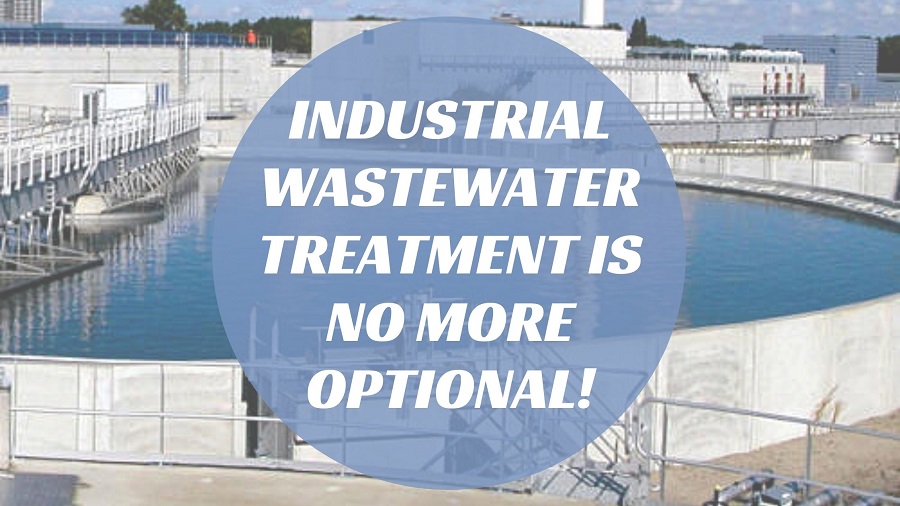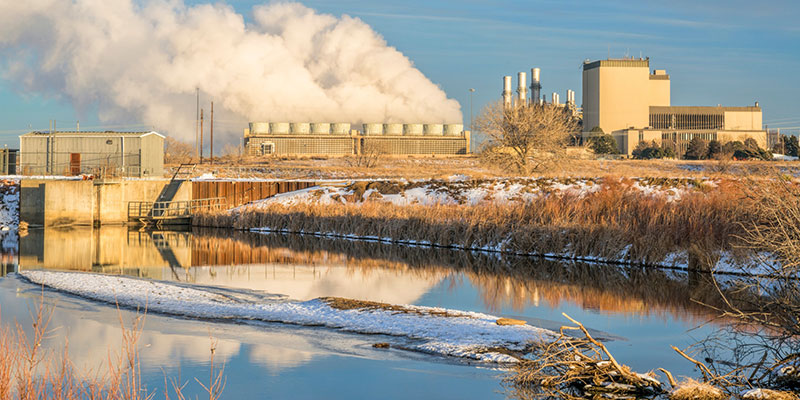Industrial Waste Water Treatment-- Sustainable Solutions for Industrial Water Administration
Industrial Waste Water Treatment-- Sustainable Solutions for Industrial Water Administration
Blog Article
The Function of Industrial Waste Water Therapy in Environmental Defense
The reliable therapy of commercial wastewater is significantly acknowledged as a foundation of environmental management, offering to reduce the damaging influences of contaminants on water ecosystems. As industries expand and evolve, the demand for durable wastewater management options becomes critical to guarantee compliance with ecological policies and advertise sustainable techniques. This demands a better examination of the therapy processes used and their effects for both environmental health and wellness and source healing. Understanding these characteristics elevates essential inquiries about the equilibrium in between commercial development and environmental integrity, motivating more expedition of the courses onward.
Importance of Drainage Treatment
The value of wastewater treatment can not be overemphasized, as it plays an essential role in shielding public health and the environment (Industrial Waste Water Treatment). Reliable wastewater treatment systems are vital for eliminating impurities from commercial discharge, thus stopping unsafe materials from going into natural water bodies. This process lessens the risk of waterborne diseases, which can occur from neglected wastewater, and safeguards community wellness
In addition, treated wastewater can be securely recycled in various applications, such as watering and industrial processes, advertising lasting water administration techniques. By recycling water, markets can dramatically reduce their freshwater intake, contributing to source preservation.
In enhancement to wellness benefits, wastewater therapy is essential for protecting water environments. Toxins in untreated wastewater can bring about the degradation of water top quality, hurting aquatic life and disrupting eco-friendly equilibriums. By treating wastewater before discharge, sectors help keep the integrity of neighborhood ecosystems and advertise biodiversity.
Furthermore, regulatory compliance is a vital element of wastewater management. Complying with well-known environmental criteria not only prevents legal consequences yet likewise enhances a business's track record as an accountable corporate person. Basically, reliable wastewater therapy is important for safeguarding public health and wellness, shielding the atmosphere, and promoting sustainable industrial techniques.

Resources of Hazardous Waste Water
Industrial wastewater stems from a selection of sources, each adding to the intricacy of treatment procedures. Mostly, these sources include manufacturing facilities, refineries, and processing plants, which generate effluents as a by-product of their operations. Industries such as fabrics, drugs, food and drink, and petrochemicals produce significant quantities of wastewater, usually laden with pollutants consisting of heavy metals, organic substances, and nutrients.
Along with manufacturing, farming activities add to commercial wastewater through runoff and effluent from animals operations and crop handling. The meat and dairy industries, particularly, are recognized for releasing high degrees of biochemical oxygen demand (BOD) and virus.
Additionally, mining and mineral handling activities produce wastewater having suspended solids and dangerous chemicals. Power generation plants, particularly those making use of nonrenewable fuel sources, additionally contribute wastewater through cooling down systems and chemical cleansing procedures.
Each of these resources presents one-of-a-kind challenges pertaining to the make-up and volume of wastewater generated, demanding customized therapy services to mitigate their ecological impact. Understanding the diverse beginnings of commercial wastewater is vital for developing effective management techniques targeted at safeguarding water resources and promoting sustainable commercial techniques.
Therapy Processes and Technologies
Efficient treatment processes and innovations are important for managing commercial wastewater and minimizing its ecological influence. Different techniques are employed to get rid of impurities, adjust to different wastewater attributes, and abide with regulative requirements.
Physical therapy processes, such as sedimentation and filtering, facilitate the elimination of suspended solids. These techniques are usually used as initial steps to lower the load on succeeding therapy stages. Chemical therapy, including neutralization, coagulation, and flocculation, addresses dissolved contaminants by altering their chemical properties, making them easier to divide from water.
Organic treatment modern technologies, such as turned on sludge systems and biofilters, make use of bacteria to deteriorate natural issue and nutrients. These methods are particularly reliable for biodegradable waste streams, promoting the natural decomposition process. Advanced therapy technologies, such as membrane filtering and advanced oxidation procedures, deal boosted elimination effectiveness for challenging toxins, including hefty metals and relentless natural substances.
Each of these therapy processes can be configured in numerous mixes to produce tailored options that meet details commercial demands. The choice of technology depends on factors such as the sort of wastewater, preferred therapy outcomes, and economic considerations, their website ensuring that industries can operate sustainably while minimizing their ecological footprint.
Environmental Advantages
Carrying out durable wastewater treatment processes not only makes certain compliance with regulatory standards however also generates significant environmental advantages. Reliable therapy of commercial wastewater reduces the discharge of damaging toxins into all-natural water bodies, consequently safeguarding water communities. By removing harmful materials, hefty steels, and pathogens, these processes help preserve biodiversity and advertise healthier environments.
Additionally, treated wastewater can be repurposed for different applications, consisting of irrigation and commercial procedures, decreasing the demand for freshwater sources. This reuse not only conserves water yet also lowers the stress on local water materials, which is specifically essential in water-scarce areas.
In addition, effective wastewater treatment minimizes the danger of dirt and groundwater contamination, making certain the integrity of neighborhood settings. Industrial Waste Water Treatment. By protecting against the infiltration of harmful substances, sectors add to the total wellness of surrounding environments and neighborhoods, improving public depend on and promoting lasting commercial methods
Regulatory Framework and Compliance
A comprehensive regulative structure controls the treatment of industrial wastewater, making sure that industries comply with rigid compliance requirements. Numerous national and regional regulations, such as the Clean Water Act in the USA, stated limits on the discharge of pollutants into water bodies. These guidelines are designed to safeguard marine communities and public health by mandating that industries apply ideal treatment innovations.
Conformity with these regulations often includes getting authorizations, conducting regular monitoring, and reporting discharge degrees to governing authorities. Failure to comply can result in considerable fines, including penalties and functional limitations, thereby incentivizing markets to take on best methods in wastewater management.
Along with governmental guidelines, lots of sectors likewise stick to voluntary requirements and certifications, such as ISO 14001, which advertise lasting environmental monitoring methods. Stakeholders are significantly promoting for enhanced openness and responsibility in wastewater monitoring, pushing for more stringent enforcement and more strenuous coverage needs.
Inevitably, a durable governing structure not only offers to alleviate ecological threats however likewise fosters a society of sustainability within the industrial field, motivating continual renovation in wastewater treatment processes.
Final Thought

The effective therapy of industrial wastewater is progressively acknowledged as a foundation of environmental defense, offering to reduce the damaging impacts of pollutants on marine basics environments. Efficient wastewater therapy systems are vital for eliminating contaminants from commercial discharge, thus stopping unsafe materials from getting in all-natural water bodies.Industrial wastewater stems from a variety of resources, each contributing to the complexity of therapy procedures. Reliable therapy of industrial wastewater lowers the discharge of read the article harmful contaminants right into all-natural water bodies, thereby safeguarding marine ecosystems.In verdict, commercial wastewater therapy is important for safeguarding ecological stability and advertising sustainable water monitoring.
Report this page